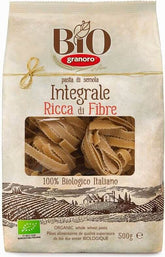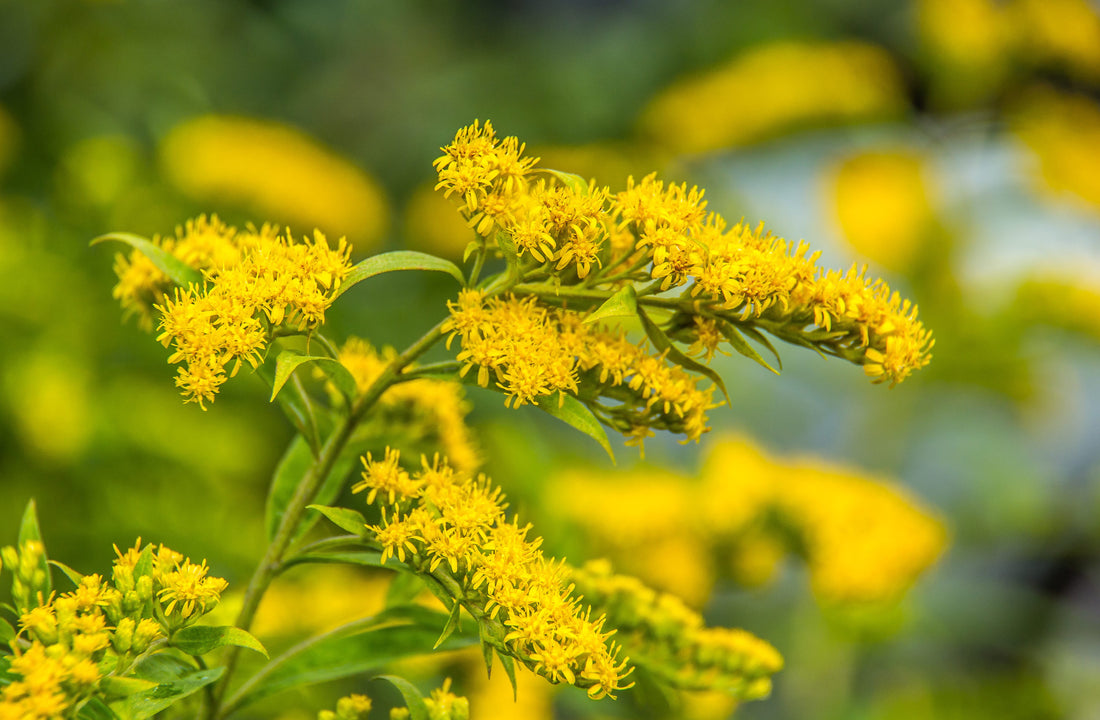Goldenrod - so about the properties and uses of this extraordinary plant
Goldenrod is a plant that is widespread in our country. It was one of the factors that drew the attention of our ancestors. It is worth noting that to date it is an important substrate in folk medicine. It has a number of health-promoting properties that affect almost our entire body extensively. However, as a result, not everyone can use it. This is due to the content of active substances that can provoke undesirable reactions in the body. So let's start from the beginning.
What exactly is goldenrod?
Goldenrod is also called goldenrod, the herb of the Mother of God, a goldsmith, a goldenrod and a red burn. All of these terms, of course, refer to her appearance during flowering. On the other hand, there are almost a hundred species of goldenrod alone. They all belong to the large daisy family and most of them are found in North America and Asia. Goldenrod is the most common in Poland. It is worth noting that the raw material used in folk medicine is the goldenrod herb, that is, its aerial parts. The plant itself usually grows to around a meter tall, but there are also much taller cultivars - for example late goldenrod (3 metres). Interestingly, almost all goldenrod species can be assigned to honey plants. This means that we can take advantage of its health-promoting properties by consuming the honey made from it.
Components of goldenrod
Goldenrod is an extremely valuable source of all vitamins and minerals, but its greatest treasure is undoubtedly its active ingredients. Among this numerous group of chemical compounds, goldenrod is particularly rich in antioxidants, compounds that enable our body to effectively fight oxygen free radicals. These include, for example, flavonoids (rutin, quercetin, kaempferol) and various phenolic glycosides (saponins, tannins, leocarposid). We also find yellow dyes, as well as essential oils and derivatives of caffeic acid.
Words on goldenrod honey
Goldenrod honey is not very popular in Poland. This is a new type of honey, characterized by a strong sweet taste and an interesting sour-bitter aftertaste and smell. However, its color ranges from straw to amber and it is one of the fastest crystallizing honeys. Interestingly, goldenrod is an extremely valuable plant for beekeepers, as it largely determines the survival of bees in winter. This state is influenced by the flowering period, which falls at the turn of August/September and lasts until late autumn. This gives the bees access to food almost until the first frost, making them survive the winter period much better. In addition, this honey is difficult to obtain precisely because beekeepers leave a large part of it as bee food, which makes it available in small quantities on the market. Goldenrod honey itself was once called the nectar of life because of its many health-promoting properties.
Health-promoting properties of goldenrod
Goldenrod was and is such a popular medicinal plant because of its extensive effects on the entire body. For example, it is characterized by an anti-inflammatory effect and is great in the fight against various pathogenic microorganisms. In addition, it has astringent, diuretic, anticoagulant, soothing and detoxifying properties.
Goldenrod and Kidney Health
Goldenrod can be a great remedy for many kidney diseases and is known for its ability to support the work of our urinary system. Due to the high content of flavonoids and anthocyanins, it has bactericidal and fungicidal effects, which is why it helps reduce the risk of all urinary tract infections. In addition, if it occurs, it helps to fight the microorganisms present there, for example in inflammation of the urinary bladder or urethra. In addition, it supports the functioning of the kidneys themselves, increases the efficiency of glomerular filtration and has a diuretic effect, significantly reducing the risk of kidney stones.
Golden on healthy skin
It is worth noting that the plant, or rather the infusion prepared from it, is perfect for various skin diseases. In folk medicine, it is widely used to relieve all kinds of itching and rashes, but also to disinfect small wounds and abrasions caused by damage to the top layer of the skin. Thanks to its astringent and anti-inflammatory effects, it effectively reduced swelling and gave a feeling of relief and accelerated wound healing. In addition, it is worth noting that goldenrod is perfect for acne-prone skin, as well as those prone to seborrhea. Finally, it will significantly reduce the feeling of itching, burning and swelling, but also specifically disinfect, which can reduce the number of new pimples. The goldenrod-based liquid also plays an active role in cleansing the skin, brightening the skin and certainly reducing any redness.
goldenrod and digestive problems
Consuming infusions made from common goldenrod can be beneficial for the proper functioning of our digestive system. This is due to the action of goldenrod, which is to stimulate the production of more digestive juices, i.e. bile, stomach acid, saliva and intestinal juices. All this means that even with various digestive disorders, which are manifested by indigestion, diarrhea, flatulence and gas - goldenrod - it can significantly increase the efficiency of digestion and the digestibility of the meals taken. In addition, the high content of phenolic acids and tannins has a beneficial effect on almost the entire digestive system, and in addition can affect the severity of some of its diseases. These include, for example, gastritis and enteritis. Regular use of infusions from this plant, thanks to its anti-inflammatory properties, can significantly reduce the symptoms of such diseases, thereby increasing the comfort of everyday life.
Goldenrod on the cardiovascular system
Many scientific studies have proven that the common goldenrod herb can have a significant impact on our heart health. In one of these experiments, the effect on the regeneration of the heart of rats after a heart attack was examined. It turned out that the condition of this organ in the group that took goldenrod decoction was almost 34% better than in animals that did not take it. In addition, goldenrod has been shown to have the property of occluding blood vessels by affecting the condition of their walls and the epithelium lining them. It is also worth noting that after prolonged use, this plant can have an antihypertensive effect, and thus reduce blood pressure. This condition is also influenced by a diuretic effect, which additionally reduces any swelling in the body. This condition significantly relieves the cardiovascular system and facilitates blood circulation.
Why goldenrod can detoxify our body
The goldenrod herb is also characterized by a detoxifying and antioxidant effect. This means it can help our body fight oxygen free radicals, cleanse it of toxic metabolites, and more. All this is due to the flavonoids it contains, or actually their complexes, which are formed when dissolved in water. These complex entities can become trapped and then combine with metabolites, making them much easier to clear from the body along with the urine. This is one of the reasons why the use of infusions made from this plant is especially recommended for patients struggling with gout, rheumatoid arthritis and all skin diseases.
How to prepare a decoction and infusion of goldenrod?
The preparation of the goldenrod broth is extremely simple and quick. Add 1.5 tablespoons of dried goldenrod herb to a glass of lukewarm water. Then cook the whole thing on low heat for another 3 minutes and leave to cool. It is worth noting that the decoction is intended for external use, so you can immediately soak gauze in it, then squeeze out the excess liquid and apply to eruptions, local skin damage or acne lesions, but it is also great for rinsing the mouth.
However, to prepare the infusion, pour two teaspoons of dried goldenrod in a cup of boiling water. Then we steep under the lid for about 15 minutes and a kind of tea is already ready to drink. Such an infusion can be drunk several times a day, but it is best after meals.
Ordinary goldenrod - contraindications
Despite such comprehensive measures, goldenrod is widely recognized as a safe plant. The occurrence of side effects from its use is extremely rare, however, such cases do exist. It is true that after stopping the IV or other forms of ingestion, all symptoms usually disappear very quickly. However, it should be noted that the use of goldenrod is not recommended in the presence of edema closely related to kidney or heart failure. In addition, it should not be taken by children under the age of 12, pregnant women and nursing mothers. This is simply due to insufficient safety studies in these groups. The only exception to breaking such a regime is direct medical advice. It is also worth noting that when taking goldenrod infusions, it is necessary to consume large amounts of liquid, which of course is directly related to its diuretic effect. Let's add that in case of no improvement or worsening of symptoms of any disease during treatment with this plant - this condition should be consulted with a doctor.
summary
Goldenrod is a somewhat forgotten plant with many health benefits. Its use derives directly from ancient folk medicine, but is slowly becoming popular again. It has a significant impact on the functioning of many systems, including the cardiovascular, digestive and urinary systems, and can alleviate any skin problems and cleanse our system of unnecessary metabolites. In addition, it is a honey plant and the honey obtained from it also has many beneficial properties. Goldenrod is a fairly safe plant, but don't let it put you to sleep and if there are any side effects, we should see a GP immediately.

















Leave a comment
Please note that comments must be approved before publication.